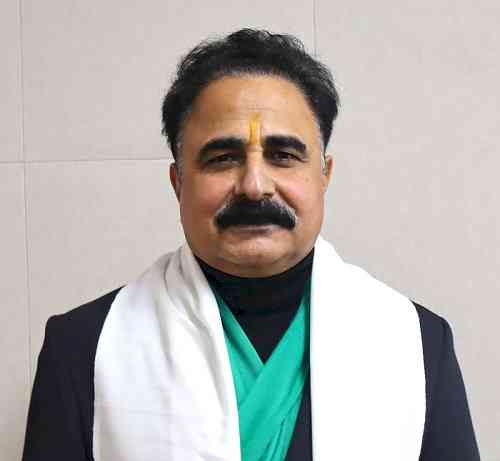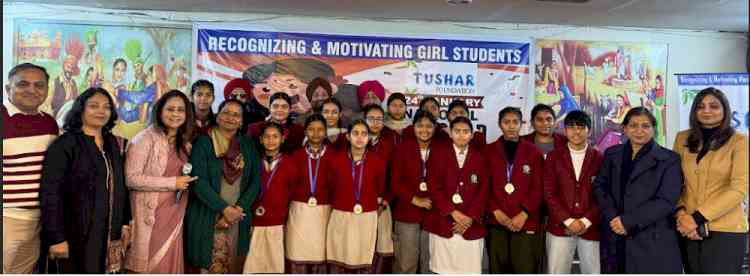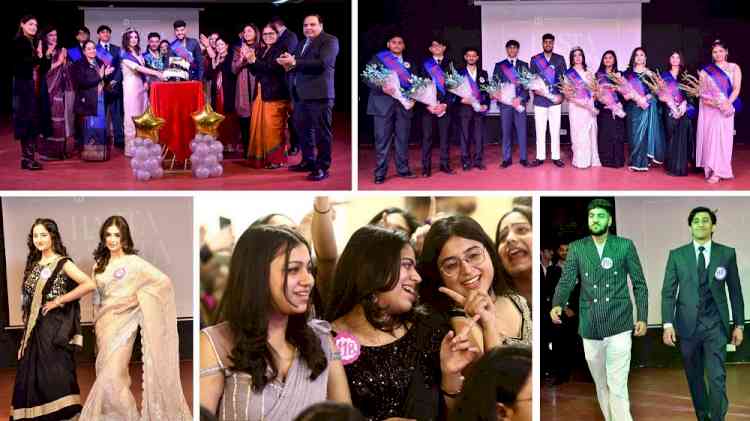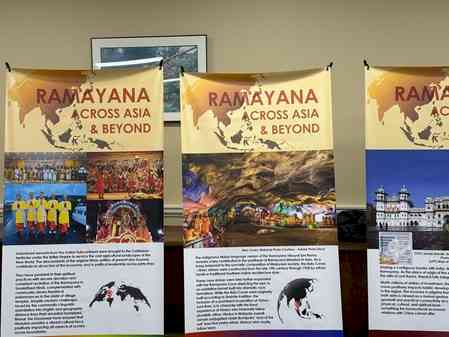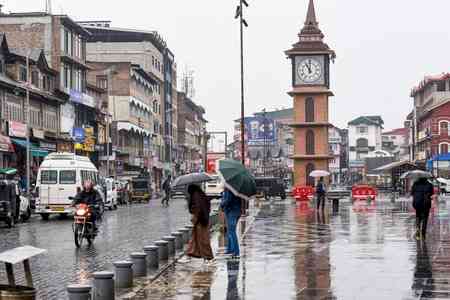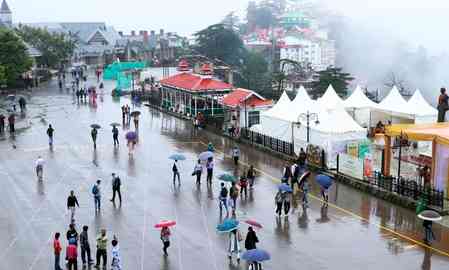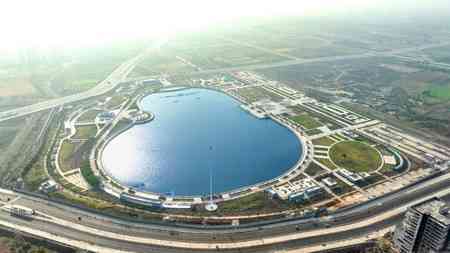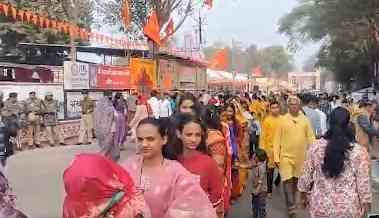Day 2 of international conference on ‘A conversation for change: human rights, youth and drugs’
Session had detailed discussion about role of civil society
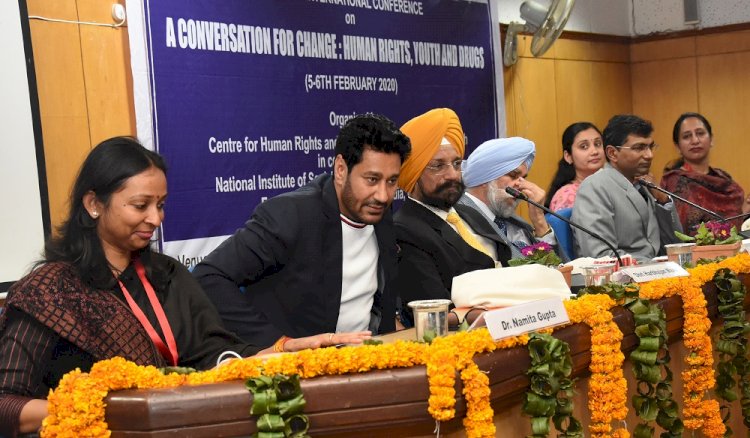
Chandigarh: The 2nd day of the Two Day International Conference on the theme ‘A Conversation for Change: Human Rights, Youth and Drugs’, started here today with Technical Session III on ‘Youth and Civil Society: Journeys Of Change And Intervention’ which was chaired by Dr. Upneet Kaur Mangat, Assistant Professor, Centre for Human Rights & Duties, Panjab University. The session had detailed discussion about the role of civil society in protecting the youth from indulging in drug abuse. It further elaborated on leading a sustainable life. Youth that is the future for every country needs to think twice and should provide more opportunities to get rid from such evils.
One of the women survivors from “Nav Kiran Harm Reduction Programme” in Kapurthala also shared her story with the audience. She told the audience about how she started taking drugs while working in a factory amongst other girls there and ended up into drug addiction. How the addiction ruined her married life and ultimately she has to come back to her parents home. She also shared her story about drug de- addiction in Nav Kiran rehabilitation home at Kapurthala. She concluded that leaving drugs is maybe difficult but it is not impossible.
Another women survivor from “New Kiran Harm Reduction Programme” in Kapurthala narrated her story to the audience. She had a loving family but after her sometime her husband left and which became a turning point in her life. She told that how a lady approached her and started giving emotional support to her which lead her to the way of drugs. She shared her entire success story to overcome drug addiction from indulging into drugs and becoming a boutique owner.
Dr. Abhimanyu, Mehar Foundation, Panchkula, Haryana is also a drug abuse survivor who struggled for around 13 years and after that he started an NGO “Mehar Foundation” which is a open rehabilitation Centre. He narrated his entire story where he shared about his childhood which was controlled by his parents which ended him into taking drugs. He then talked about was able to get rid of them. He was even disowned by his family and society. It took him a long time to realize that this problem of drugs was harming him. In the end, he told the audience was to stay away from drugs and try not to come into such a company.
Mr. Panki Sood, NGO Naya Savera, Kullu, Himachal Pradesh is also a drug abuse survivor. He is a mountaineer. He shared his story with the audience about how he got into drugs and how he was able to come out of it. He discussed the various problems faced by drug addicts due to which their coming back is difficult. He then opened this NGO. He added that it is better to listen and understand, rather than coming up on a platform and sharing such a loser story. He concluded by saying “life is beautiful, life is healthy.”
Ms. Sonu Sood W/O Mr. Panki Sood also shared her experience what kind of hardships she had to face being a wife of a drug addict. She narrated her entire story and urged the audience not to indulge in drug abuse. She also gave this message that it is important to understand drug addiction and there is need to treat drug addicts.
VALEDICTORY SESSION
Shri Harbhajan Maan, Punjabi Folk Singer and Actor spoke about how music to him was not just a source of livelihood but also an effective medium of social change. He quoted legendary country folk singer John Lennon that Music can dismember a society. He has had three decades of an enthralling career in music where he has carved a niche for himself by being one of the few Punjabi Music celebrities who have never resorted to vulgarity, violence or aggression in any of his songs. He is of the genuine opinion that Music ought to be transformitory because if music does not engender affection, there was no point of the same,
Shri Kaustubh Sharma IPS, IGP, Special Task Force, Punjab spoke about the influence of the drugs on the society wherein he stated that substance abuse is not a new practice and has been prevalent even in traditional societies but the magnitude of abuse has progressed from non-serious to alarming proportions in the modern times. He spoke about the important cognitive development of each child up to 6 years of age where family influencers and peer pressure ought to be controlled. These psychosocial affects on a person end up manifesting later in age and have social impacts individually and collectively on the society. Use of Marijuana and opium do have medicinal effects but if the propensity is increased can lead to psychotic implications.
Dr. Damanjit Kaur, MD in Psychiatry, Non Official member of State Mental Health Authority, Punjab spoke on “youth and civil society: journey of change and intervention”. He discussed about the criteria for vulnerability. She mentioned that Addiction is a treatable disorder, like any other disease, drug addiction can be treated successfully and relapse is not failure of treatment. She concluded with the challenges which is faced while treating the drug addictions such as social stigma, investment of time, patience etc. she concluded with the qoutation: “Addiction is the only prison where the locks are from inside”.
Hon’ble Justice Jasbir Singh (Retd.), Punjab and Haryana High Court, Chandigarh, in his address quoted from Gurubani of Shri Guru Granth Sahab which gives the lessons for Youth to follow the path of Right. He mentioned that drug addiction is a social disease which need to be cured by the society only. Change of mindset of youth is very much needed. At this point of time where youth want to get white collar jobs, there is need to put hard work in any thing they do. He said ‘I, Me, My and Money’ have become four important words in today’s time, which are reason of increased frustration amongst youth which led to drug use.
Earlier, Prof. Karamjeet Singh, Registrar, Panjab University Chandigarh in his welcome address, elaborated upon the theme of the seminar, stating that within the societal paradigm there were three main parameters that propel change in the society. These were the adequate enforcement of law, social engineering and impact on health in the society. He was delighted that these three elements were very well represented in the Valedictory Session itself as Justice Jasbir Singh and Kaustubh Sharma IPS represented the legal leg of the society, Celebrity Guest Harbhajan Mann epitomized the social change in the society and Dr. Damanjeet, represented the involvement of psychiatric factors upon the Public Health of individuals. He further quoted that Punjab the land of great Prophets and Gurus who by themselves reflected a certain way of spiritual life. He concluded his address by stating that people of Punjab are very industrious and created a niche for themselves wherever they went. Despite that Punjab was bleeding and it was upto each individual to inculcate merits of Patience, Contemplation and Responsibility as it was upto every person how they make themselves and their societies proud.
Vote of Thanks by Dr. Namita Gupta (Chairperson Centre for Human Rights and Duties, Panjab University, Chandigarh).
Day 1 TECHNICAL SESSION II
The theme for this session was ‘Drug Prevention, Treatment and Care’.
Prof Nandita Singh, (Dean International Students, Panjab University), Chandigarh was the chair for the technical session II. Various eminent speakers from diverse field were invited to put light on the theme of the technical session II.
Dr. L. Swasticharan, Chief Medical Officer, Directorate General Health Services, Ministry of Health and Family Welfare talked about the role of different ministries and cooperation from all the related authorities which is very important in curbing this menace. As the junk food industry, alcohol industry and tobacco industries are the most important revenue generator of the government due to which they always tries to manipulate various measure to control the drug abuse. He concluded his talk by quoting “the authorities are trying to mop the floor while the tap is on”, reflecting that curbing drug menace is an ongoing process.
Shri Surinder Saini, Deputy Director, Punjab and Chandigarh, Nehru Yuva Kendra Sangthan, Punjab discussed about the 623 Nehru Yuva Kendra, which he has established in rural areas of Punjab for youth. He shared his experiences while working in rural areas of Punjab. He made comparison between old and new Punjab and its youth and how the drug menace has emerged as a socio- cultural problem. He also spoke about the outreach programs to the rural youth in Punjab through “youth clubs” which organize leadership programs, street plays, blood donation camps and sports events.
Dr. Sandeep Bhola, Master Trainer UNODC, District Hospital, Kapurthala, Punjab talked about Gender, Drug use and Health and more prominently talked about “hidden population” from which he majorly talking about the women drug abusers. As being women they were not coming openly because of the social stigma attached to it. The women who are more into drug abuse are sex workers and abundant girls. But the women suffered the most difficult withdrawn symptoms. He introduced the ‘Navjeevan Kendra’ which was opened in 2007 with the help of Red Cross Society, District Administration and District Health department in Kapurthala. He explained “hidden population” which consist of the population which is drug dependant but do not come for treatment, mainly due to the stigma attached to the drug menace problem. Then he throws light upon the ‘Nav Kiran Kendra’ which has been started for the women drug dependents. Patient OPIOID assisted treatment clinics 156 clinics were running.
Dr. Mamta Sharma, Associate Professor of Psychology, Punjabi University, Patiala, Punjab throw lights on the issue of ‘Preventing Drug Use’ an education and community approach. Then she highlighted about the two programs in which youth could be a part of positive change in someone’s life, programs like ‘Buddy program’ and ‘DAPO Program’. She talked about the role of the youth and the society itself to protect their peers from indulging in to drug abuse. She further hammered on the poor rehabilitation and treatment to the drug abuser as only 1 from 7 drug abusers gets treated. She also talked about the role of teachers in handling the students indulging in the drug menace.
Dr. Sumit Bakshi, NADA India Foundation, Jammu. He started an informal session on ‘Change’ and talked about the stepped approach to change. He also mentioned that behavioral change can only be attained through communications in case of drug use. Moral support is the best support that one can provide to a drug addict which can help him/her in changing bad habits, thought process and to boost their morale.
The technical session was concluded with intensive interaction between the panelists and the participants.
After the technical session, an award winning short film titled “Black to life” (13 minutes) was shown by Gurjeet Singh, (Student M.A.1st) from Centre for Human Rights and Duties, Panjab University Chandigarh) for which he was awarded Best Actor award. The movie was screened at the Sikh International short Film Festival at Melbourne, Australia in the year 2018. The movie was centered on the issue of Drug Menace.


 cityairnews
cityairnews 
